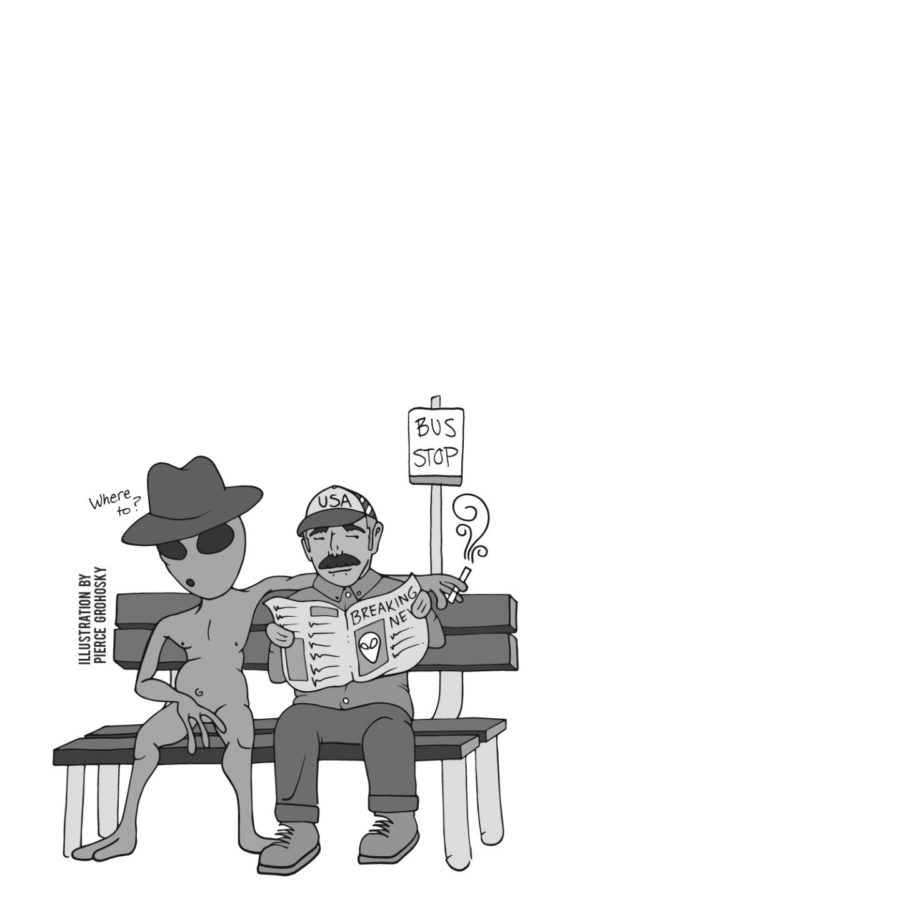Immigrant and “alien” are not interchangeable
Those who use the term “alien” to describe immigrants tend not to notice that they are implying a group of people do not belong or are invading.
October 15, 2014
The definition of “alien” in the thesaurus connotes words such as strange, opposed and unknown. It even goes so far as to include the phrase, “little green man.”
Alien is a word used nationwide to describe immigrants, particulary undocumented immigrants in our country, though no green men have been seen yet.
Language is a powerful tool that shapes the way people think, react and feel toward certain topics. A word like alien has many negative associations and because of this, people who use the term may unknowingly hold biases against undocumented immigrants.
Not many people know how it feels to be on the receiving end of such a term.
Orlando Lara, a 22-year-old interior design and business major at Sacramento State, has been labeled an “alien” ever since he arrived in the U.S. at age 14.
Lara entered the U.S. through Tijuana, Mexico. He lived in Watsonville, California until graduating high school in 2010 then came to Sacramento for college.
“Isn’t alien supposed to mean something not from this planet? It makes it seem like we’re objects or a thing rather than people,” Lara said.
Considering most people don’t automatically think of immigrants upon hearing the term alien, the word is offensive to most immigrants.
“The first things I think of are green people with huge eyes and long appendages,” said Laurelle Bautista a 20-year-old photography major.
The most commonly associated images for the term alien are those from movies such a “Alien vs Predator” and “E.T.”.
Some of the reasons immigrants come to America is to find work so they can send money back to their home country, start a more stable life, escape life-threatening countries and/or unite with family members.
“For many of us, the jobs we work are hard,” said Lara. “We commit to a lot of sacrifice when we leave our families and we know it’s going to be impossible to go back. Sometimes we feel like we are being used. That’s why the word alien hurts us.”
Those who use the term “alien” to describe immigrants tend not to notice that they are implying a group of people do not belong or are invading.
Netzahualcoyotl Avelar, an ethnic studies professor, warns of the dangers associated with careless language.
“The word makes them non-human,” said Avelar. “When you think of aliens you think of an invasion from Jupiter or Mars, not people who look like you.”
Many ethnic groups who have immigrated to the U.S. have experienced dehumanizing language. Most of those words are considered derogatory terms in present times.
“People don’t understand how immigrants feel anymore because everyone feels like they have been here forever,” said Lara. “Most Americans don’t realize how much sacrifice we have given in order to achieve better living for our families; that’s where I find myself at.”
Lara said his experience in college has been difficult because of his immigration status.
“As a student who is considered an alien, I was prohibited from feeling free and equal to others until I became legal,” he said.
Sadly, the term “alien” is even acceptable in immigration legislation.
The California DREAM Act allowed young immigrants conditional permanent residency if they had graduated from high school in the U.S. and were of good moral character.
The “A” in DREAM happens to stand for alien.
“I would prefer a better word,” said Avelar. “But I’m not going to fight one word if the end result is good.”






























































































































